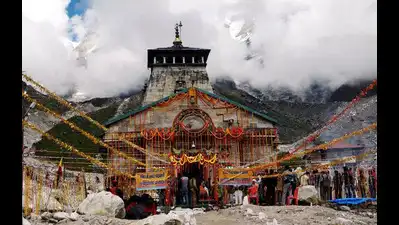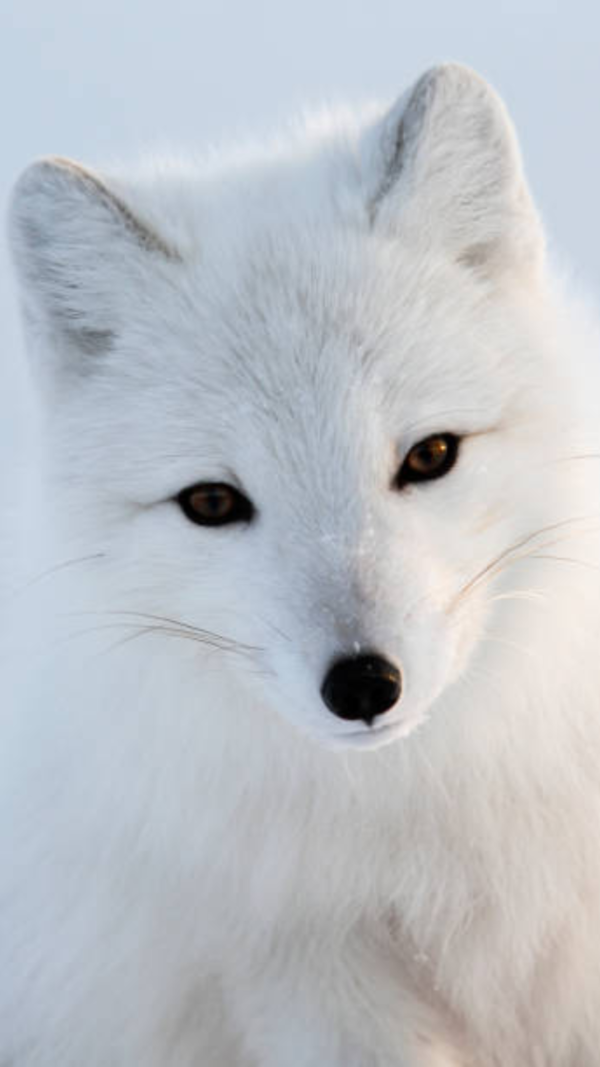DEHRADUN: More than 1,000 mules and horses have been quarantined and equine services on the Kedarnath yatra route suspended for a third day after a flu-like outbreak affected horses and mules. The quarantine was initiated after 15 animals died and symptoms of equine influenza were detected, leading to concerns over animal health and the risk of further spread.
Caretakers and officials from the animal husbandry department isolated the animals, which showed signs such as fever, cough, and nasal discharge. The Rudraprayag district administration extended the suspension of mule services on the route, which had already been halted on Tuesday and Wednesday.
A team of vets from the National Research Centre on Equines (NRCE), Haryana, visited Kedarnath to assess the situation. Their report is awaited. Out of the 5,800 equines registered for the pilgrimage, 15 have died since the yatra began last week, mostly due to colic and diarrhoea. A senior veterinary officer told TOI, "Four days ago, samples were collected. As reports are still coming in, around 18 samples tested RTPCR positive for equine influenza, after which we started screening."
The infected animals have been removed from the yatra. They will be re-tested after 14 days using the RTPCR method, which checks for the virus via nasal swab. Vets confirmed that EI is a highly contagious respiratory disease with high morbidity but low mortality. Veterinary teams in Rudraprayag have screened around 2,000 animals in the last two days. Nearly 700 of them are receiving treatment. Handlers have been advised to quarantine animals at their current locations. Some have taken their equines back due to the challenging terrain and conditions.
Screening and medical aid are ongoing in Gaurikund, Sonprayag, and Rampur. Officials are also educating caretakers on proper health practices for the animals. Dr Neeraj Singhal, director of the animal husbandry department, said, "The horses are recovering due to the ample rest they are getting, and soon they will resume service."
Experts from GB Pant University were expected in Kedarnath by Wednesday evening to study symptoms such as swollen stomachs and diarrhoea, which were also observed in the equines that died. Singhal added, "The equines that died earlier had these symptoms, so samples were collected by NRCE. Now, GB Pant experts will also share their expertise with us."
The Kedarnath yatra is one of the most significant Hindu pilgrimages in India, with lakhs of devotees visiting the temple each year. Located at over 11,000 feet in Uttarakhand's Rudraprayag district, the shrine is accessible only by a 16 km uphill journey from Gaurikund. Around 40% of pilgrims rely on mules and horses to complete the trek, especially elderly devotees and those unable to walk the steep terrain.
In 2009, a similar outbreak of equine influenza had disrupted the yatra, prompting authorities to improve animal health protocols. Since then, the animal husbandry department has enforced rules for equine registration, vaccination, and regular screening, especially during pilgrimage season.
The Rudraprayag administration has warned against overcharging pilgrims and alerted caretakers not to use home remedies on the animals, which could be considered cruelty under the Prevention and Control of Infectious and Contagious Diseases in Animals Act, 2009. State animal husbandry minister Sourabh Bahuguna is expected to visit Kedarnath on Thursday morning to review the situation.
Dehradun: More than 1,000 mules and horses have been quarantined and equine services on the Kedarnath yatra route suspended for a third day after a flu-like outbreak affected horses and mules. The quarantine was initiated after 15 animals died and symptoms of equine influenza were detected, leading to concerns over animal health and the risk of further spread.
Caretakers and officials from the animal husbandry department isolated the animals, which showed signs such as fever, cough, and nasal discharge. The Rudraprayag district administration extended the suspension of mule services on the route, which had already been halted on Tuesday and Wednesday.
A team of vets from the National Research Centre on Equines (NRCE), Haryana, visited Kedarnath to assess the situation. Their report is awaited. Out of the 5,800 equines registered for the pilgrimage, 15 have died since the yatra began last week, mostly due to colic and diarrhoea. A senior veterinary officer told TOI, "Four days ago, samples were collected. As reports are still coming in, around 18 samples tested RTPCR positive for equine influenza, after which we started screening."
The infected animals have been removed from the yatra. They will be re-tested after 14 days using the RTPCR method, which checks for the virus via nasal swab. Vets confirmed that EI is a highly contagious respiratory disease with high morbidity but low mortality. Veterinary teams in Rudraprayag have screened around 2,000 animals in the last two days. Nearly 700 of them are receiving treatment. Handlers have been advised to quarantine animals at their current locations. Some have taken their equines back due to the challenging terrain and conditions.
Screening and medical aid are ongoing in Gaurikund, Sonprayag, and Rampur. Officials are also educating caretakers on proper health practices for the animals. Dr Neeraj Singhal, director of the animal husbandry department, said, "The horses are recovering due to the ample rest they are getting, and soon they will resume service."
Experts from GB Pant University were expected in Kedarnath by Wednesday evening to study symptoms such as swollen stomachs and diarrhoea, which were also observed in the equines that died. Singhal added, "The equines that died earlier had these symptoms, so samples were collected by NRCE. Now, GB Pant experts will also share their expertise with us."
The Kedarnath yatra is one of the most significant Hindu pilgrimages in India, with lakhs of devotees visiting the temple each year. Located at over 11,000 feet in Uttarakhand's Rudraprayag district, the shrine is accessible only by a 16 km uphill journey from Gaurikund. Around 40% of pilgrims rely on mules and horses to complete the trek, especially elderly devotees and those unable to walk the steep terrain.
In 2009, a similar outbreak of equine influenza had disrupted the yatra, prompting authorities to improve animal health protocols. Since then, the animal husbandry department has enforced rules for equine registration, vaccination, and regular screening, especially during pilgrimage season.
The Rudraprayag administration has warned against overcharging pilgrims and alerted caretakers not to use home remedies on the animals, which could be considered cruelty under the Prevention and Control of Infectious and Contagious Diseases in Animals Act, 2009. State animal husbandry minister Sourabh Bahuguna is expected to visit Kedarnath on Thursday morning to review the situation.









